Data solutions

Russia aims to accelerate nuclear power plant design using AI
Russia aims to shorten the design time of NPP with the help of AI. It is unlikely possible until 2030 but Rosatom estimates that it can be achieved in 2030-2040. Since such calculations require gigantic amounts of power, it will not be possible without use of a quantum computer.
Read more in Nuclear Engineering International
AI tools deployed at two Constellation nuclear plants
Blue Wave AI labs has deployed machine learning tools for two nuclear plants. As a result, there has been improvements in fuel utilisation and operational efficiency. In the future AI and ML can help to lower the costs, save on fuel and reduce the amount of waste.
Read more in Nuclear Engineering International
Data centers look to nuclear to meet rising power needs
Nuclear offers a power source for rapidly expanding data centers. The need is growing due to cloud computing and artificial intelligence. For example, Google, Amazon and Microsoft are examining the opportunities to use nuclear power, especially SMR’s.
Read more on Reuter Events
Atomic Canyon unveils AI-powered search platform for nuclear sector
The launch of Atomic Canyon along with Neutron, a custom-built AI search platform for the nuclear energy sector, has been announced. The Neutron platform is “designed to improve efficiency, modernize the regulatory approval process and streamline workflows”. It was trained on millions of pages of documents from the US Nuclear Regulatory Commission (NRC) and “marks a pivotal step in advanced AI search capabilities”.
Read more in Nuclear Engineering International
Longview Fusion selects Fluor to design laser fusion plant
US-based Longview Fusion Energy Systems has contracted Fluor to design “the world's first commercial laser fusion power plant. This is based on breakthroughs in fusion energy gain at the Lawrence Livermore National Laboratory's (LLNL’s) National Ignition Facility (NIF). Longview is the only fusion energy company using this approach. The aim is also to utilize " additive manufacturing and optimization through AI.
Read more on Nuclear Engineering International
Researchers use AI to stabilize nuclear fusion reactions
A team of engineers, physicists, and data scientists from Princeton University and the US Department of Energy’s (DOE’s) Princeton Plasma Physics Laboratory (PPPL) have harnessed the power of artificial intelligence (AI) to predict and avoid the formation of a specific plasma problem in real time. The research paves the way for more dynamic control of a fusion reaction than current approaches and provides a foundation for using AI to solve a broad range of plasma instabilities.
Read more on Nuclear Engineering International
Audits and the waste data trail
With digitization and emerging technologies producing even more data-rich environments, information management systems today need to capture and protect both a greater variety and a growing quantity of data. Blockchain technology is offering solutions for adding audit trails to digital data, ensuring a distributed record of who did what and when to what file, allowing all stakeholders to verify an action that was taken this morning, or 10 days ago, or 10 years ago, was the right one.
Read more on Nuclear Engineering International
Idaho researchers develop reactor digital twin
By modelling nuclear reactors, digital twins allow researchers to understand how certain changes affect the entire system. Digital twins could save nuclear energy researchers time and money as new, innovative reactors come online. The AGN-201 digital twin receives real-time data from the actual reactor, then uses machine learning to anticipate its performance. With the digital twin, researchers can interact with the real-world reactor in mixed reality by monitoring data.
Read more in World Nuclear News
Artificial Intelligence at the service of ITER and nuclear engineering
A team of experts in F4E has been working in this field for more than two years to test the contribution of AI in nuclear engineering. The key findings are that AI is here to stay. It is vital to become more familiar with its potential to obtain quicker forecasts in a more accurate manner. One important matter is good quality data and the time required to collect it. The analysis, together with the design of the right AI model, and its training, are fundamentally important.
Read more in Fusion for Energy
Assystem and York University co-operate on fusion digital twin development
Assystem has partnered with the University of York to launch a PhD focused on researching the development of a digital twin for a complex component which is essential to produce fusion energy. It is a vital step in the journey to realizing the commercial viability of fusion, which is a strategic goal for the UK as it prepares to build a prototype fusion power plant.
Read more in Nuclear Engineering International
How machine learning can accelerate the design of next-gen nuclear reactor materials
Machine learning models developed by researchers from the University of Wisconsin–Madison and Indian Institute of Science has been demonstrated to predict mechanical behavior of irradiated material. As a result, the machine learning models have a potential to reduce time and cost of developing materials for new nuclear reactor designs.
Read more in University of Wisconsin–Madison's news center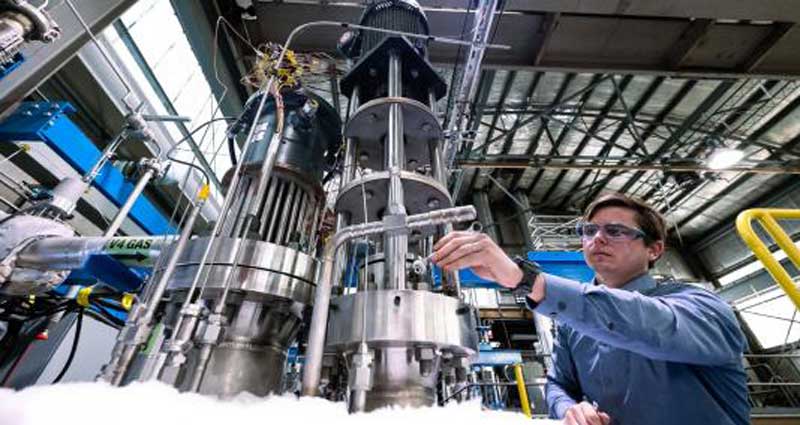
Advances in machine learning for nuclear power operations spell a brighter future for carbon-free energy
Researchers from the Argonne National Laboratory have developed a machine-learning model to monitor and detect anomalies in sodium-cooled fast reactors. The model analyzes cooling system sensor data from the test facility and it can detect loss-of-coolant accidents from the data.
Read more in Argonne National Laboratory's press release
Is the Nuclear Energy Industry Ready for AI?
Artificial intelligence has shown its potential but it also poses challenges when applying to various aspects of nuclear energy. The International Atomic Energy Agency, the United States Nuclear Regulatory Commission and the Nuclear Energy Agency have ongoing efforts to develop guidelines, benchmarks and best practices for using artificial intelligence in nuclear field.
Read more in Neutron Bytes blog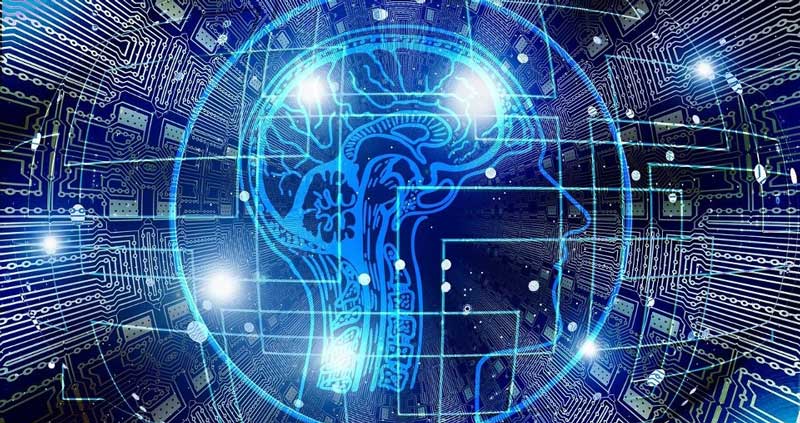
First international benchmark of artificial intelligence and machine learning in nuclear reactor physics
The Nuclear Energy Agency has launched a comprehensive benchmark to predict critical heat flux using artificial intelligence. Critical heat flux is difficult to model due to complex flow and heat transfer dynamics. The current models are based on empirical correlations and now new benchmark is aimed to leverage accuracy of the scientific models.
Read more in Nuclear Energy Agency's news center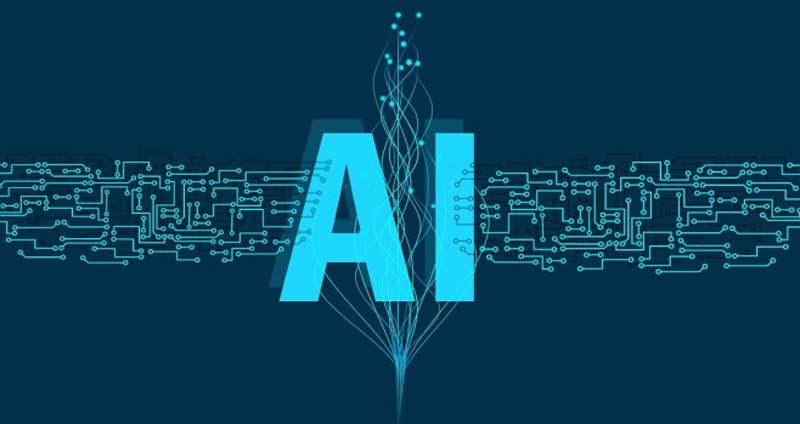
UK regulators consider application of AI in nuclear sector
The United Kingdom's Office for Nuclear Regulation has piloted so called nuclear regulatory sandbox process to explore the use of artificial intelligence in nuclear industry. In the process, two different use cases were selected, and as a result, regulators made recommendations how to deploy AI safely as well as how to develop regulatory approach to AI.
Read more in World Nuclear News
Introduction to the Role of Artificial Intelligence in Strengthening the Security of Nuclear Facilities
In the recent years, utilization of artificial intelligence has been increasing enormously, but understanding the consequences may be unclear. World Institute for Nuclear Security will hold a workshop on artificial intelligence in nuclear security on February 6th to 8th, 2024. The objective of the workshop is to review the latest information on the topic.
Read more in World Institute for Nuclear Security
IAEA Launches Open Data Platform
The new data platform provided by the International Atomic Energy Agency provides an access to different kind of datasets such as incident and trafficking database. The platform aims to standardize the way how data is maintained and distributed among the member states.
Read more in IAEA's news center
Framatome to commercialise digital twin-based diagnostics
Framatome and EDF's subsidiary Metroscope are going to commercialize digital twin technology of nuclear auxiliary system. The work will be built on digital twin system developed for high-temperature gas reactor auxiliary system at Argonne National Laboratory.
Read more in World Nuclear News
Making Nuclear Energy Use Safer with Artificial Intelligence
Artificial intelligence has several use cases in nuclear industry. The article gives some examples such as decision support systems, operator monitoring system and automated safety assessment.
Read more in AZoCleantech
Enhancing nuclear power production with artificial intelligence
While generative artificial intelligence has gained massive public attention in the last few years, it is still a kind of black box, which is seen as a barrier against larger utilization in nuclear industry. However, some machine learning applications such as anomaly detection are already seen in the nuclear industry. IAEA has been supporting artificial intelligence development since 2021 by producing reports and creating working groups.
Read more in IAEA's news center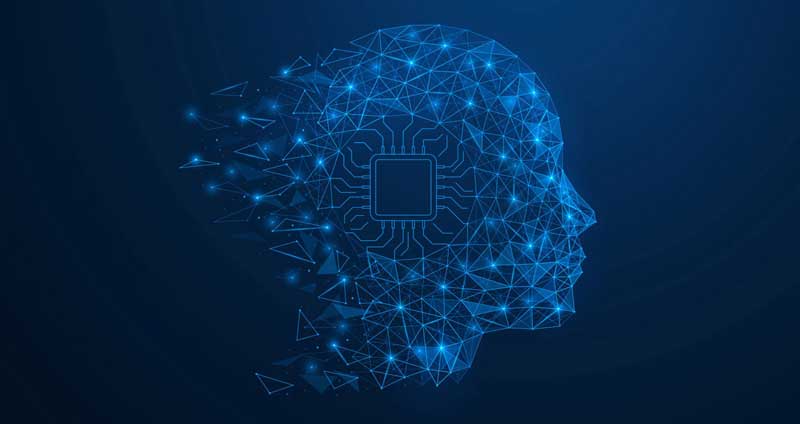
A Gateway to Artificial Intelligence for the Nuclear Industry
Tasks and activities at nuclear power plants have been traditionally based on manual work by human operators. In the Light Water Reactor Sustainability program sponsored by the United States Department of Energy, developers are creating a domain-specific ChatGPT-like virtual assistant for helping employees at nuclear power plants in their everyday tasks.
Read more in American Nuclear Society's Nuclear Newswire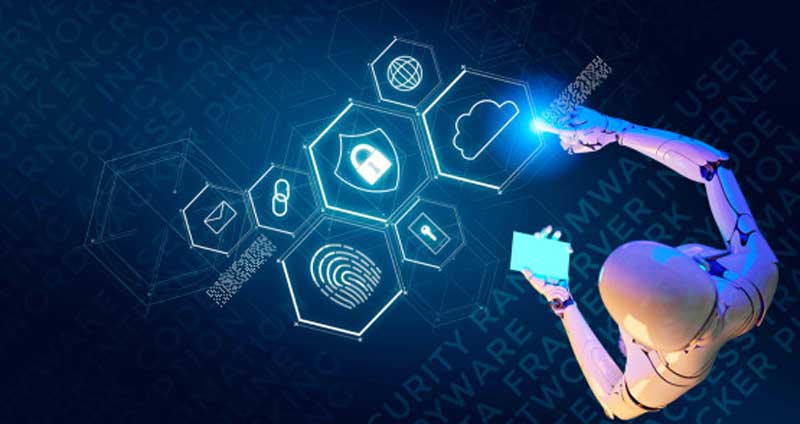
How Artificial Intelligence Will Change Information and Computer Security in the Nuclear World
Sophisticated artificial intelligence technologies may bring risks for nuclear power plants' computer security if malicious actors utilize new technology in their attacks. However, artificial intelligence may also be used to increase computer security by letting it monitor threats and recognizing anomalies.
Read more in IAEA's news center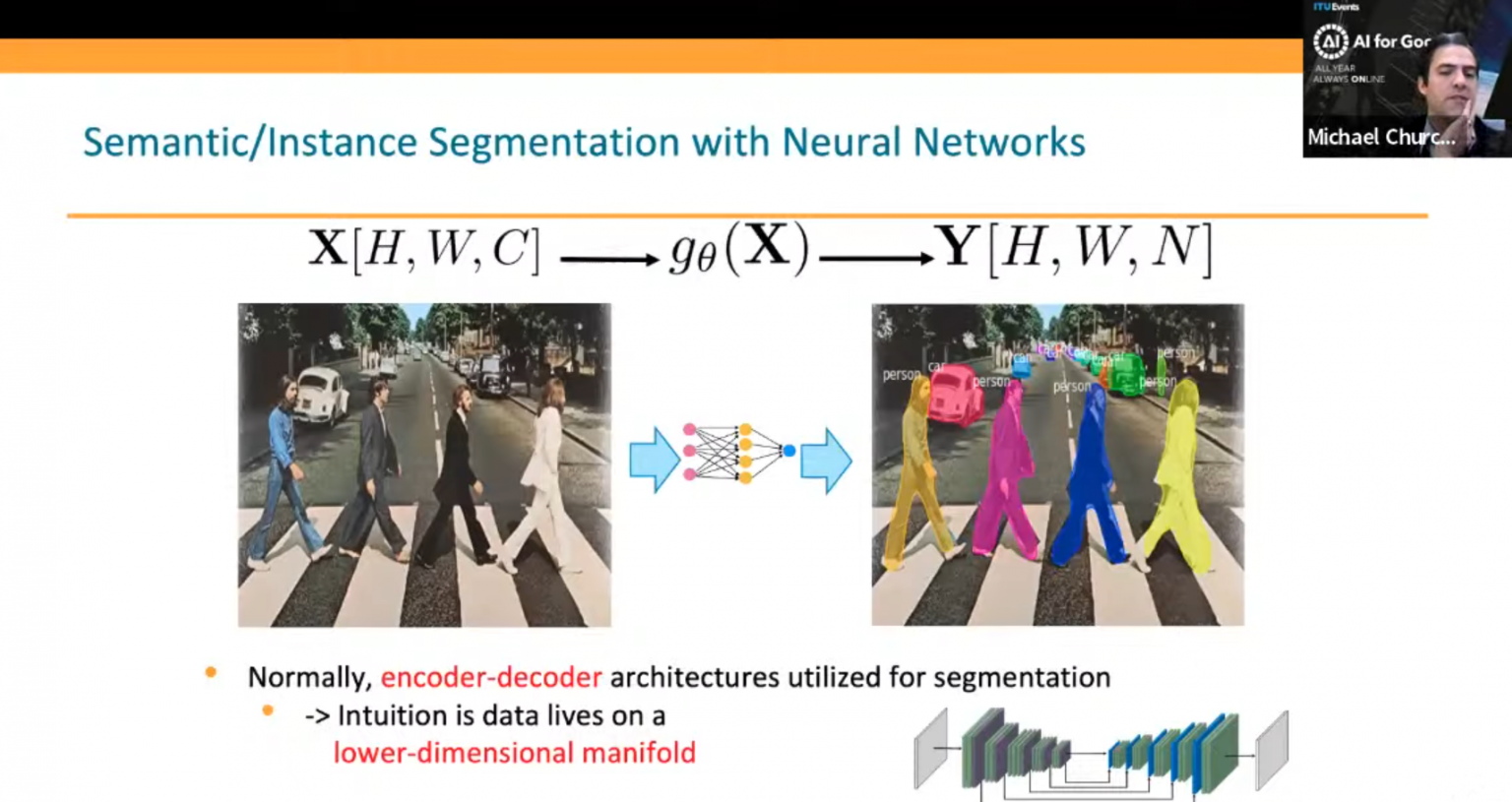
Using AI to Enhance Nuclear Fusion: The Potential and Challenges
International Atomic Energy Agency held AI for Good webinar, which included a talk on utilizing artificial intelligence in nuclear fusion simulations. The content of the talk is summarized in Barcelona Supercomputing Center's blog post: machine learning gives opportunities to optimize and increasing performance of nuclear fusion simulations.
Read more in Barcelona Supercomputing Center's blog post
ONR publishes key considerations for applying blockchain technology in the nuclear sector
The United Kingdom's Office for Nuclear Regulation has recently formed an innovation hub to advance innovative solutions in the nuclear sector more efficiently. In their innovation hub, ONR published a report on blockchain and its applicability and regulatory considerations in the nuclear sector.
Read more in ONR's news center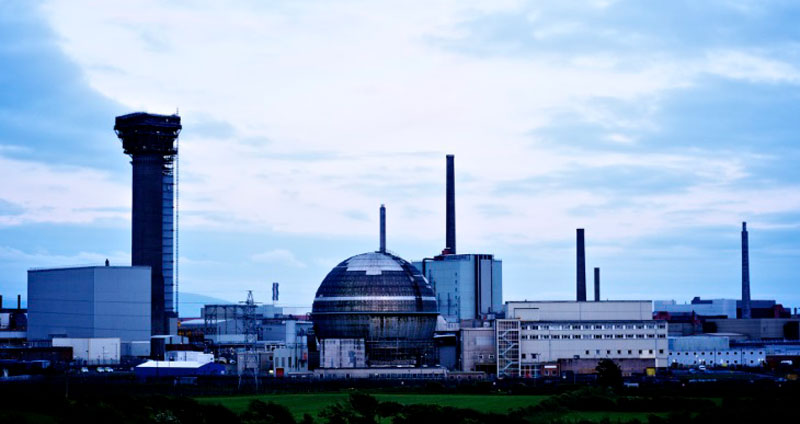
Sellafield AI strategy 'to boost safety and speed up site remediation'
Artificial intelligence has demonstrated its value in Sellafield in several business areas. Now Sellafield Ltd is moving forward with the artificial intelligence by creating a strategy for the artificial intelligence aiming to increase safety and performance as well as incorporating the new technology in frequent decision-making.
Read more in World Nuclear News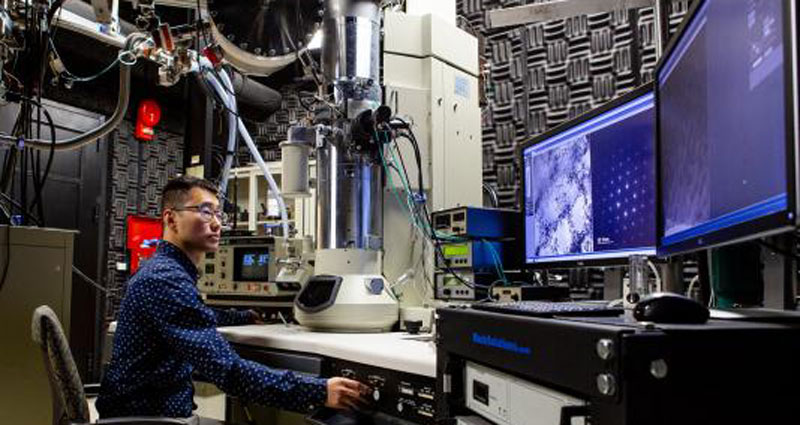
Artificial intelligence reframes nuclear material studies
A deep learning based algorithm, which is able to track defects in materials under extreme conditions using video recordings as data source, has been developed in the Argonne National Laboratory. The new method improves discovering suitable materials for advanced nuclear reactors.
Read more in Argonne National Laboratory’s news center
Hot salt, clean energy: How artificial intelligence can enhance advanced nuclear reactors
Molten salt is a key component in molten salt reactors because it works as a reactor coolant and fuel. Finding a potential mixture of molten salt and its optimal properties is a challenging task. Scientists from Argonne National Laboratory utilized machine learning in computer simulations in order to find suitable molten salt mixtures to study further.
Read more in Argonne National Laboratory’s news center
Data is key to an economic future
Machine learning and artificial intelligence have a potential to reduce costs and enhance safety but mainly they are still not adopted to use in nuclear industry. The article explains the benefits of advanced data analytics methods.
Read more in Nuclear Engineering International
AI’s nuclear opportunities
The International Atomic Energy Agency published a report on artificial intelligence earlier this year. Based on the findings by the IAEA, the article discusses how artificial intelligence could be utilized in the areas of automation, optimization, analytics, prediction and insights.
Read more in Nuclear Engineering International
Blockchain could be the key to nuclear material safeguards
Blockchain is a promising technology for tracking nuclear materials but stored data in the blockchain is not encrypted by default. Researchers in the University of New South Wales have developed a distributed ledger based nuclear material safeguarding system, called as SLINMAC, which is able to provide end-to-end encryption for the data.
Read more in UNSW Sydney’s news center
Machine learning facilitates “turbulence tracking” in fusion reactors
Ordinarily turbulence in fusion reactors is studied by averaging quantities that characterize the structures of the turbulence. Now machine learning-based computer vision models have been used in tracking individual structures of turbulence enabling a more detailed view of the turbulence in fusion reactors.
Read more in MIT’s news center
Seven Ways AI Will Change Nuclear Science and Technology
The International Atomic Energy Agency has listed seven potential areas wherein artificial intelligence could be utilized, including nuclear science research, nuclear power plants, nuclear security and nuclear safeguards.
Read more in IAEA’s news center Read IAEA’s recent publication on Artificial Intelligence
Inria, Framatome team up on digital nuclear safety solutions
The French National Institute for Research in Digital Science and Technology and Framatome have signed a partnership agreement to enhance nuclear safety by utilizing digitalization and computational technologies. The co-operation includes collaboration in research programmes, industry challenges and training.
Read more in World Nuclear News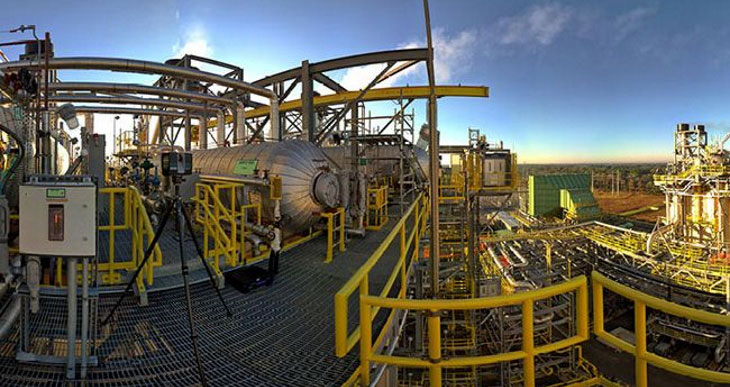
3D Simulations of Operating Nuclear Power Plants
Duke Energy One and L3Harris offer a new innovative service for decision making in nuclear power plants using 3D simulations. The 3D data is created using laser scanners by Duke Energy One after which L3Harris pairs the data with an immersive environment.
Read more in World Nuclear News